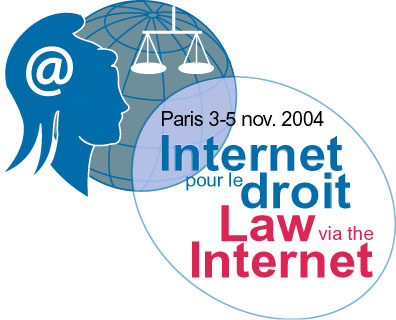Accueil > 6ème édition des Journées "Internet pour le droit" > Les interventions > Jeudi 4 novembre 2004 : La création, l’évolution et la diffusion de (...) > L’enrichissement hypertexte des documents anglais et chinois selon (...)
 L’enrichissement hypertexte des documents anglais et chinois selon l’HKLII : problèmes rencontrés, solutions trouvées
L’enrichissement hypertexte des documents anglais et chinois selon l’HKLII : problèmes rencontrés, solutions trouvées
jeudi 4 novembre 2004, par
Toutes les versions de cet article : [English] [français]
M. Kevin PUN, Professeur associé, Department of Computer Science and Faculty of Law, Université de Hong Kong-Chine
Eric Chan
Research Assistant
Center for Information Security and Cryptography
Department of Computer Science
The University of Hong Kong
Phone : (852) 2241 5937
Fax : (852) 2803 2041
Website : http://www.cs.hku.hk/cisc
HKLII : http://www.hklii.org.hk
K H Pun, Eric Chan, K P Chow, C F Chong, Jasmine Ma
Lucas Hui, W W Tsang, H W Chan
HKLII provides the general public on the Internet with free legal information relating to Hong Kong. One of the main advantages of HKLII over some of the other legal databases is the provision of hyperlinks creating inter and intra cross-referencing between statutes and judicial decisions. Such cross-referencing is partly achieved by a well-organised website structure and a simple naming convention. In the case of statutes, URLs are generated automatically based on the statute number or the acronym of statute name. In the case of judicial decisions, generation of URLs is less straightforward, as references to judicial decisions may take a variety of forms. One particular problem for HKLII arises from its bilingual nature, with its databases containing both English and Chinese documents. Before hyperlinks can be created, references to both English and Chinese documents must first be identified. Unlike English, there is no delimiter between words in Chinese, which makes it difficult to identify keywords required for indexing Chinese documents. This paper describes some of the problems we have encountered in adding hyperlinks to the English and Chinese documents in HKLII, and our progress thus far.



